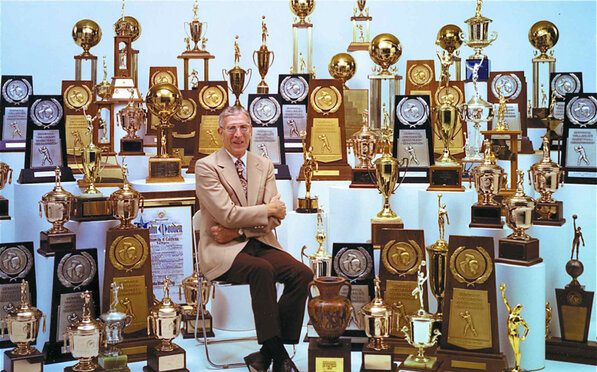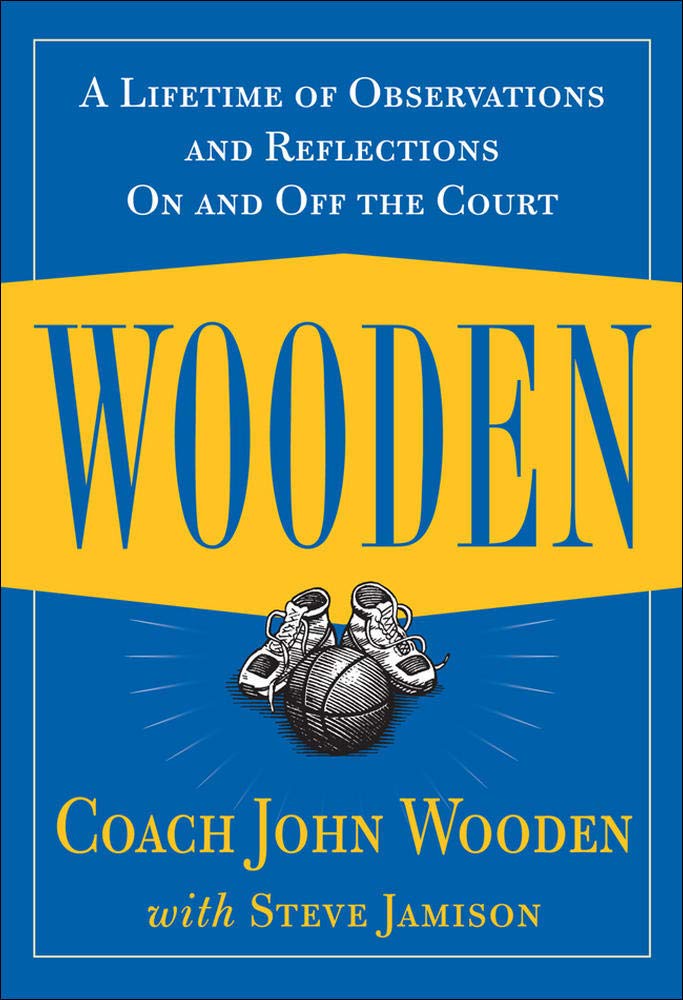Success is the peace of mind that is the direct result of self-satisfaction in knowing you did your best to become the best that you are capable of becoming. – Coach John Wooden
One of coach John Wooden’s favourite saying is this: “As long as you try your best, you are never a failure. That is, unless you blame others.” Coach Wooden defined success 1 as the peace of mind that is the direct result of self-satisfaction in knowing you did your best to become the best that you are capable of becoming.” Coach Wooden understands success having experienced it in his illustrustrious career and also understands what it means to wait before succeeding. He won ten NCAA national championships, seven of them in consecutive years, and had four undefeated seasons, including an 88-game winning streak. Before he achieved this remarkable feat, his team did not win a national championship for the first fourteen seasons.

Coach Wooden asserts that: Only one person can ultimately judge the level of your success-you. Anything stemming from that success is simply a by-product, whether it be the score, the trophy, a national championship, fame, or fortune. They are all by-products of success rather han success itself, indicators that you perhaps succeeded in the more important contest. That real contest, of course, is striving to reach your personal best, and that is totally under your control. When you achieve that, you have achieved success. Period! You are a winner and only you fully know if you won.
“You have to do your best while you still have a chance. Life is short. You never know when the game, when your body, will be taken away from you. Don’t waste it!” – Discipline Is Destiny (The Stoic Virtues Series) Ryan Holiday

In his book, Wooden: A Lifetime of Observations and Reflections on and Off the Court 2, Coach John Wooden shared a great poem titled “A Parent Talks to a Child Before the First Game.” that echoes the need for doing ones best and the difference between winning and succeeding.
Winning is fun. Sure. But winning is not the point. Wanting to win is the point. Not giving up is the point. Never being satisfied with what you’ve done is the point.
This is your first game, my child. I hope you win.
I hope you win for your sake, not mine.
Because winning’s nice.
It’s a good feeling.
Like the whole world is yours.
But, it passes, this feeling.
And what lasts is what you’ve learned.
And what you learn about is life.
That’s what sports is all about. Life.
The whole thing is played out in an afternoon.
The happiness of life. The miseries. The joys.
The heartbreaks.
There’s no telling what’ll turn up.
There’s no telling whether they’ll toss you out in the first five minutes or whether you’ll stay for the long haul.
There’s no telling how you’ll do.
You might be a hero or you might be absolutely nothing. There’s just no telling.
Too much depends on chance. On how the ball bounces.
I’m not talking about the game, my child.
I’m talking about life. But, it’s life that the game is all about. Just as I said.
Because every game is life. And life is a game.
A serious game Dead serious.
But, that’s what you do with serious things.
You do your best. You take what comes.
You take what comes And you run with it.
Winning is fun. Sure.
But winning is not the point.
Wanting to win is the point. Not giving up is the point.
Never being satisfied with what you’ve done is the point.
Never letting up is the point.
Never letting anyone down is the point.
Play to win. Sure.
But lose like a champion.
Because it’s not winning that counts.
What counts is trying.
“Don’t be afraid to give your best to what seemingly are small jobs. Every time you conquer one it makes you that much stronger. If you do little things well, the big ones tend to take care of themselves.” – Dale Carnegie
Meditation
- Daily Calm with Tamar Levitt – Priorities
- For many of us, an average day feels like a scramble of urgent tasks, its the buzz of an incoming text and the flash of a fresh e-mail, and it feels satisfying to complete these timely to-dos. As we tend to the seemly urgent, there is a danger that we neglect the deeply important.
- Often what feels urgent is actually unimportant, it just feels important.
“The key is not to prioritize what’s on your schedule, but to schedule your priorities.” – Stephen R Covey
Daily Jay by Jay Shetty – First Thoughts, Last Thoughts
- According to the National Science Foundation, an average person has about 12,000 to 60,000 thoughts per day. Of those, 80% are negative and 95% are repetitive thoughts. If we repeat those negative thoughts, we think negatively way more than positive ones.
Podcast
- Supergoop!: Holly Thaggard (2020) | How I Built This with Guy Raz
All the best in your quest to get better. Don’t Settle: Live with Passion.



Comments are closed.